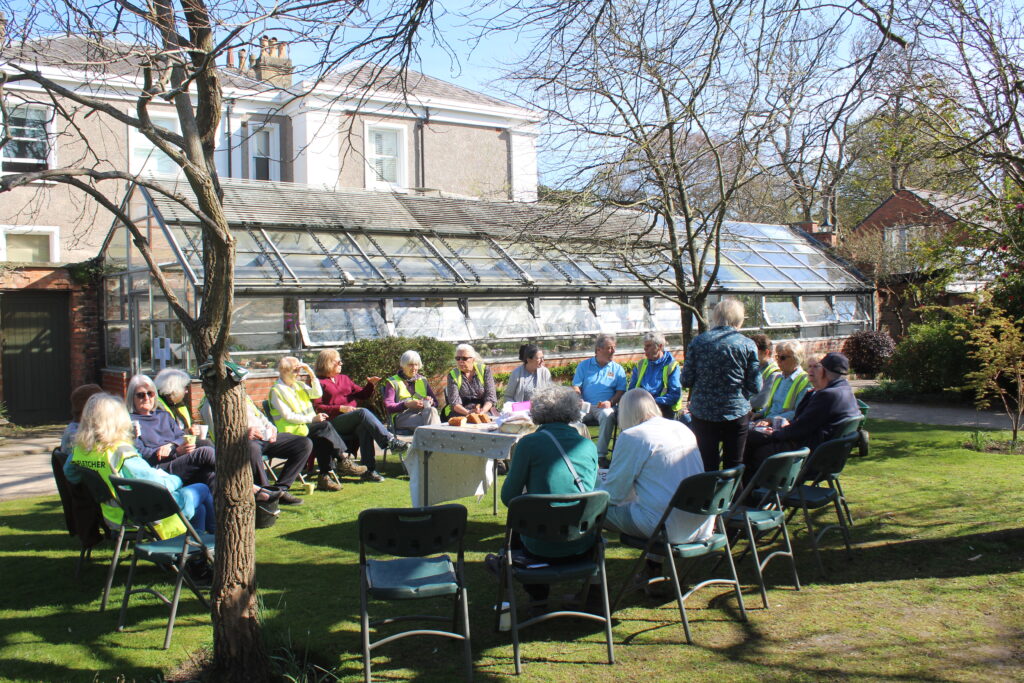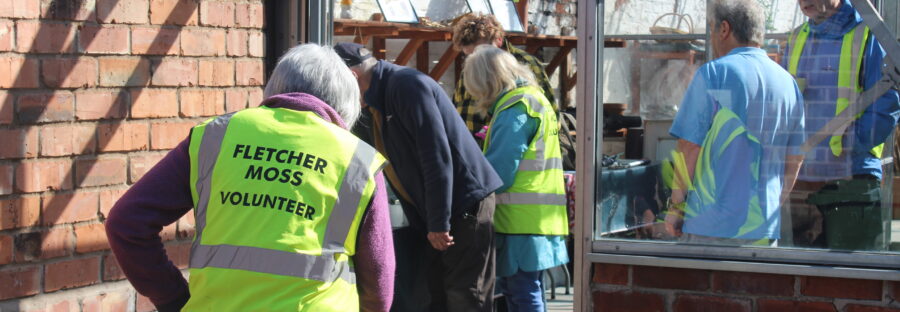The Friends of Parsonage Gardens
Team of volunteer gardeners working hard to maintain, cultivate and protect Didsbury’s historic walled gardens
It’s an unseasonably warm Spring morning in Didsbury’s historic Parsonage Gardens.
The park is quiet save for the occasional dogwalker and a hi-viz clad huddle of older folk, sat in the sun on foldout chairs.
In the midst of their makeshift circle stands a neatly dressed table, filled with home-baked confectionary and a hodge-podge collection of crockery.
There is conversation being had and milky coffee being supped as Heather Stemp addresses her Kitchen Cabinet – the team of volunteer gardeners known as The Friends of Parsonage Gardens (FPG).
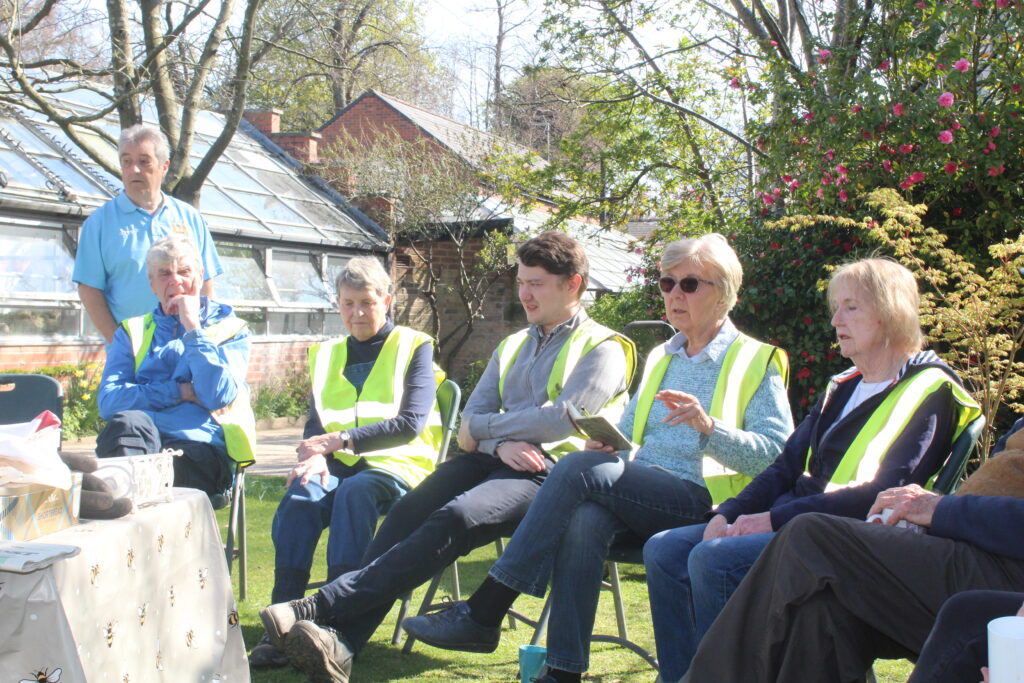
Formed in 2010 as an extension of the Friends of Fletcher Moss, FPG have worked to restore, cultivate and protect the gardens after years of funding cuts and subsequent neglect left them in a state of disrepair.
Alongside Alan Hill, now deceased, lead volunteer Heather Stemp, has over the course of 15 years led the restoration of the herbaceous border, Alpine House and greenhouse, transforming the gardens and amassing a 35-or-so strong team of dedicated volunteers.
The gold standard of community gardening
The group’s work has not gone unnoticed, with Parsonage Gardens being awarded the RHS “It’s your Neighbourhood” award for 13 consecutive years.
These awards now sit proudly displayed in the recently renovated greenhouse, alongside tools, crockery and memorials to previous volunteers.
Talking to the group, it is clear they are a close-knit bunch, a family unit complete with in-jokes and gentle barbs.
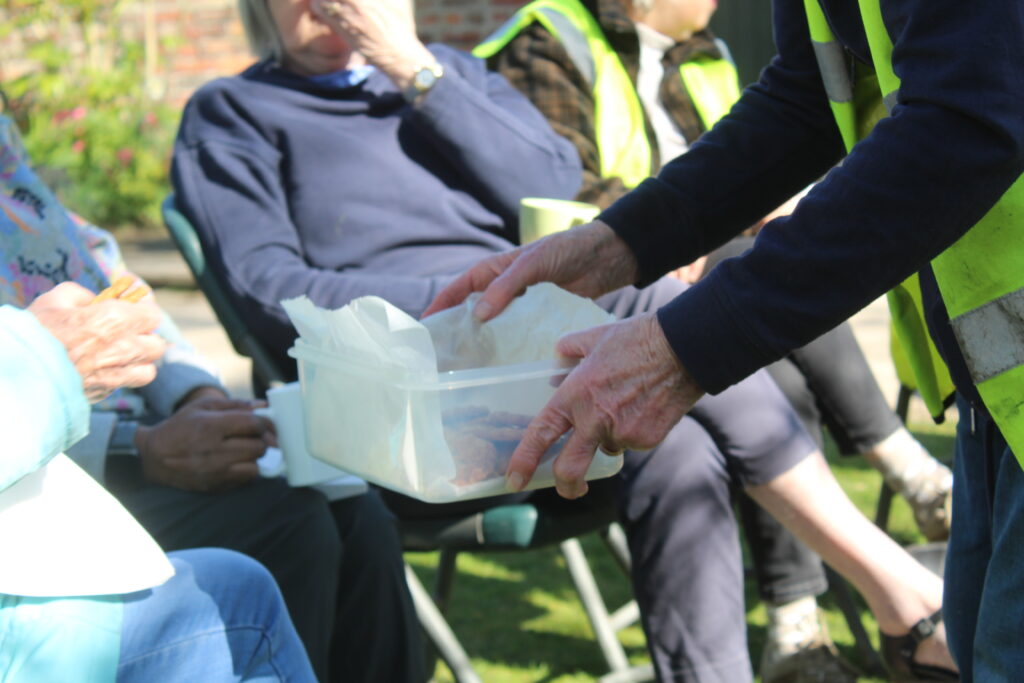
Each member’s reason for joining the group differs, though, as the majority are older, loss is often the guiding force.
Maureen, a volunteer since September 2024, said she first began attending the group in response to the death of her husband, David.
‘It never bothers me, whatever the weather, because, when you come in here (to the gardens), your memories are here’
Volunteer Maureen
She described FPG as a ‘community’, emphasising the openness with which she was first met: “They were just so welcoming to me, and its hard when you come somewhere new. I just love it.”
Nowhere is this sense of community more apparent than when talking to Heather.
Walking through the gardens
Highly knowledgable about the history of the Gardens and that of the FPG, it is clear she cares deeply about both the space and the gardeners who work within it, those who, every Tuesday, rain or shine, spend their mornings alongside her, elbows deep in dirt.
As we stroll together down the manicured path that borders the central lawn, passing beneath heavily fragrant trees and vibrant magnolias, Heather stops to chat with passing gardeners, quipping easily wth each in polite RP.
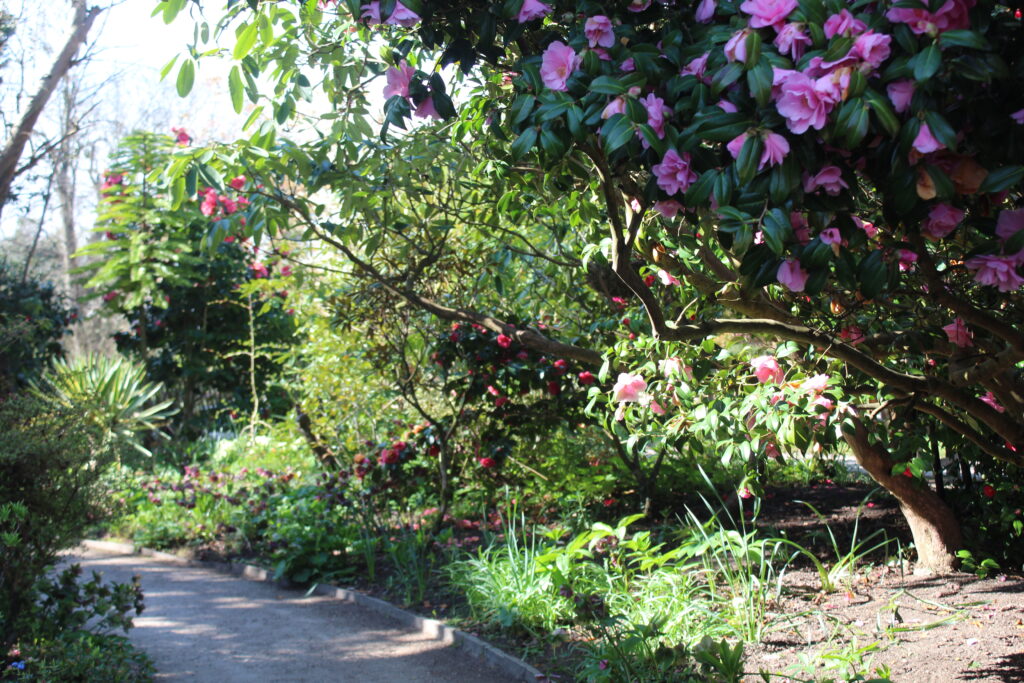
“You’ve got a job for life there, Marianne”, she says as Marianne hacks away at weeds.
Concluding the tour by winding up towards the Old Parsonage, we pass a pair of volunteers on a bench: “It’s nice to see people chatting”, Heather says, pausing for a moment.
Burglary and community
To fund the redevelopment and upkeep of the gardens, FPG hold regular fundraising events, raising £900 through plant sales alone last year.
This, I am coyly informed by Heather, is often supplemented by kindly benefactors, many of whom are frequent visitors to the park.
“The benches had all been painted, and were all beginning to peel off when a couple, known only to me on point of death, said, ‘We love coming here, what a shame about the benches. We would like to pay for them to be restored.’
“And they’re known only to me.”
Though the park-going public’s response to the work of the FPG has been overwhelmingly positive, the gardens have not been spared from an ongoing spate of horiculturally-motivated burglaries.
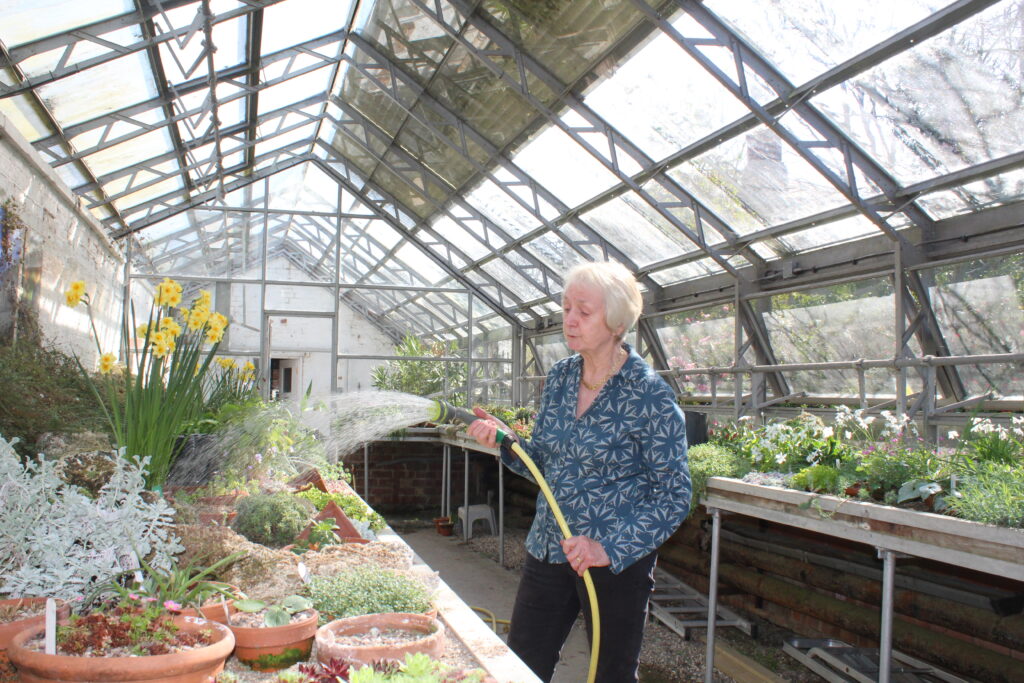
In conversation with Elizabeth Maddock, the unassailable premier of the Alpine House (a previously dilapidated conservatory now home to an impressive collection of succulents and alpine plants), about the high price tag that comes attached to many plants, she revealed: “We have a lot of theft here.”
‘People come and scout round, see what we’ve got in the garden, then earmark things they think are worth nicking’
Volunteer Elizabeth
“They come along in the dead of night with a lorry and a couple men, clamber over the fence, clamber over the wall and steal stuff.”
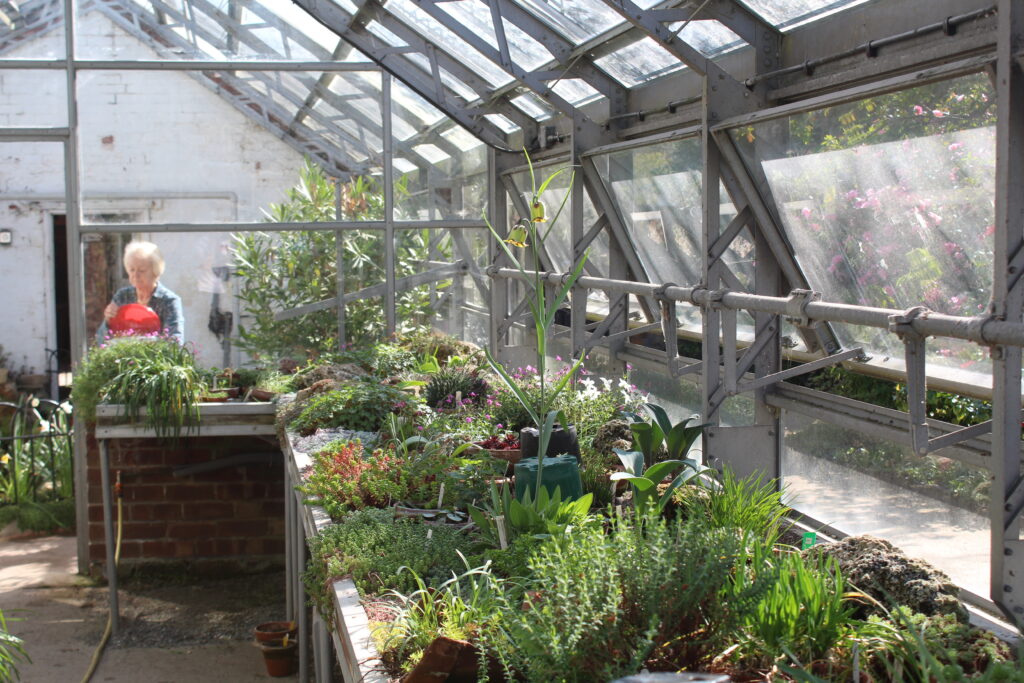
Ten years ago, this tactic was used to steal coping stones from atop the garden’s perimeter wall.
To rectify this, Heather appealed to a neighbouring house, allowing the wall to be repared at no-great expense.
Morning meetings
With a visit from an RHS judge expected in the coming months, and their annual plant sale weeks away, the gardener’s administrative meetings are more important than ever.
Announced by Heather ringing a hefty brass handbell, the group are summoned every week at 11am, congregating either on the lawn, weather permitting, or inside the impressive greenhouse.
When corraled, hot drinks and slices of typically homemade cake are shared, as the group discuss the tasks for the day.
Ultimately, these meetings are more than a chance to dole out jobs, rather they’re a chance for conversation.
Discussing why volunteers continue to come back, even when suffering through illness or grief, Heather suggested that volunteers fall into one of two categories, those who listen, and those who need to be listened to.
“It’s very good for our mental health and for our wellbeing and so on, and they’re a lovely group – and the coffee break’s really important.”
